By Rozina Ahmed
In a world where the male gaze still dominates screens and societal norms, Nandita Das emerges as a defiant force blending art, activism, and unapologetic truth-telling. The acclaimed Indian actor, director, and global advocate recently graced Lahore’s National College of Arts (NCA), igniting conversations on patriarchy, colourism, and the power of art to dismantle oppressive systems.
Invited by Prof Iram Zia Raja, Dean of Design, for the NCA’s ThinkFest series, Das’s dialogue with writer Bee Gul, “The Female Gaze—A Personal Perspective,” resonated deeply, weaving personal anecdotes with sharp critiques of societal inequities in South Asian societies. “The female gaze isn’t a trend. It’s a revolution,” she commented.
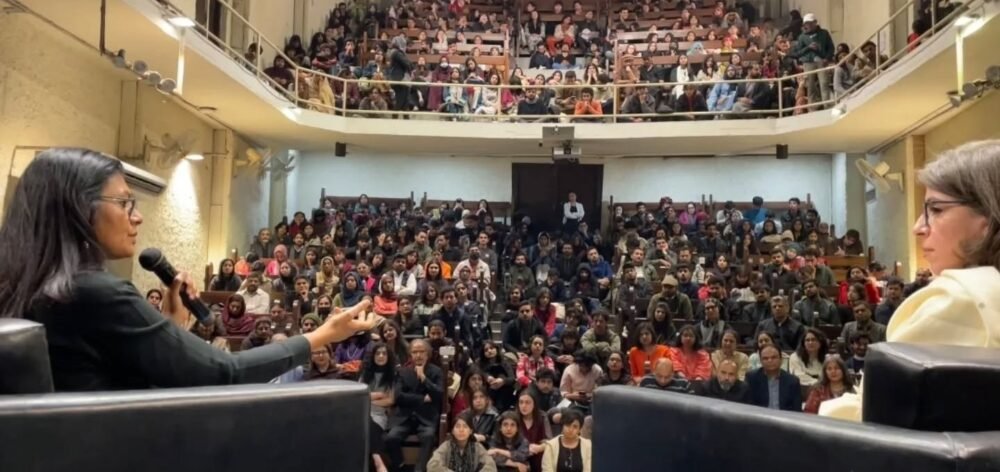

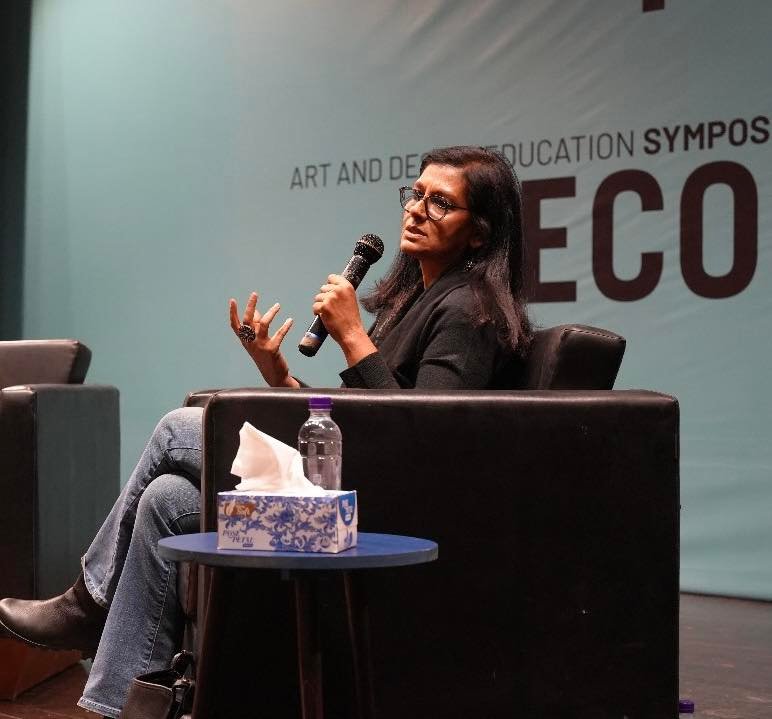
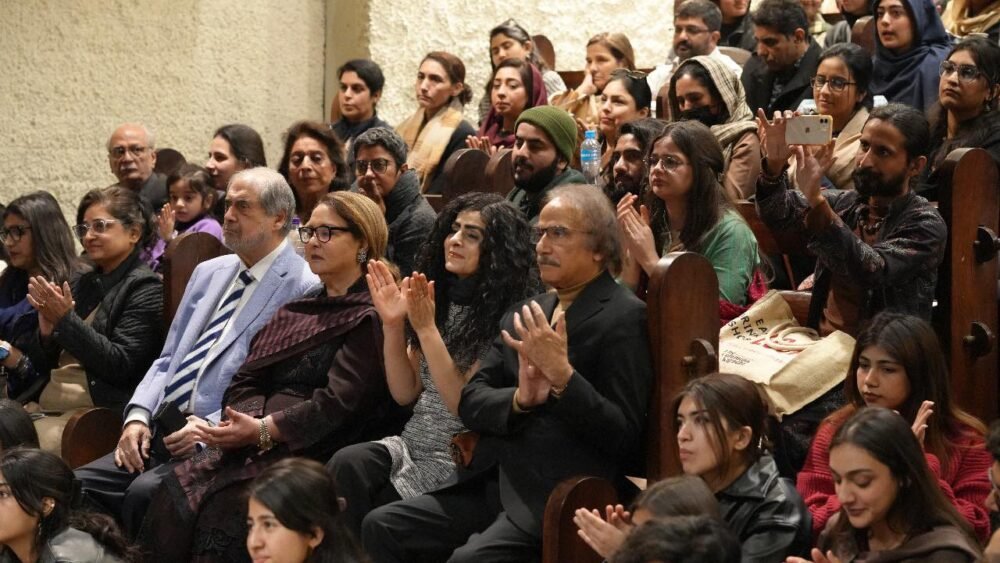
Born into a progressive family—her father, Jatin Das, a celebrated painter; her mother, a writer—Das grew up immersed in art but detached from Bollywood’s glitter.
“Theatre was my first love,” she recalled at NCA, describing her accidental entry into films via Deepa Mehta’s groundbreaking Fire (1996) with iconic Shabana Azmi. The film, exploring lesbian love in conservative India, sparked riots and bans but also ignited dialogue, paving the way for the decriminalization of homosexuality in 2018.
After two years, she acted in Earth (1998), a haunting Partition narrative; Bawandar (2000), exposing caste-based violence; and her directorial debut Firaaq (2008), a searing depiction of post-Gujarat riots trauma. Nandita continues to create content that challenges norms and provokes thought. Her film “Manto” (2018), based on the life of Lahore’s literary legendary Urdu fiction writer Saadat Hasan Manto, received widespread appreciation, bridging Indo-Pak cultural divides.
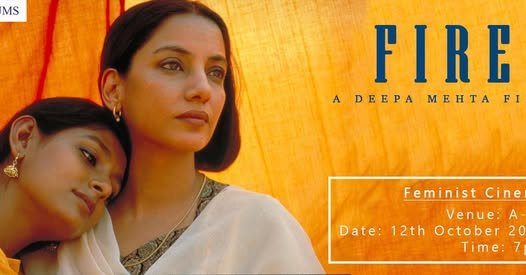


“Manto’s Lahore lives in my heart,” she shared, highlighting her emotional connection to the city during her Faiz Mela appearance, where she championed South Asia’s shared progressive heritage. Das’s presence electrified crowds. Discussing Manto’s legacy, she drew parallels between his fearless pen and today’s artists: “He wrote truths that made power squirm. We need that courage now.”
Colourism, campaigns, and courage
She mentioned the film industry and how it has objectified women by setting certain criteria of beauty that have a huge impact on the mental and physical health of a woman. She highlighted a campaign against colourism in India by ‘Women of Worth’. She told the audience that when the campaign organisers reached out her for the first time and told her the name of the campaign which is “Dark is Beautiful”, initially she disagreed with it as dark is also a colour as other colours but then she agreed to join them which became stronger with time.
A fierce critic of the toxic fairness cream industry, her advocacy extends to Pakistani audiences; during a recent TV channel interview, she stressed, “Beauty standards are colonial hangovers. Our stories must celebrate diversity, not erase it.”
Unlike mainstream Bollywood actors, she has consciously stayed away from commercial films, preferring roles and projects that have societal impact. She also mentioned not gaining any fame because of her films which were themed around social issues that were tabooed. “I don’t have to worry about the number of audiences or gaining fame” as she remains true to herself and the cause she struggles for.
Her contribution to cinema and activism makes her an important voice in India’s cultural and intellectual landscape. As Vice-Chancellor Prof Murtaza Jafri noted, honouring her at NCA, “She doesn’t just create art—she sparks movements.”
After listening to this wonderful talk, it reminds me of the words of Mary Wollstonecraft, a noted British feminist, that women should receive an education that emphasized critical thinking and reason, rather than “charm” and “refinement”.
After this long we are still at the same stage where women are objectified and judged by their physical appearance rather than their intelligence and rational thinking.
The film industry, especially Bollywood, has a huge role in strengthening patriarchy. To fight this system, we need more feminists like Nandita Das and sensitive men as well to create a parallel cinema that revolves around societal issues.
A luminary on the global stage
Das’s influence transcends borders. A two-time Cannes Film Festival jury member, she has lent her discerning eye to one of cinema’s most prestigious platforms, championing stories that defy commercial tropes. Her global stature is further cemented by her 2019 appointment as a United Nations Sustainable Development Goals (SDG) Advocate, joining global leaders to advance equality and justice.
From TED Talks to the World Economic Forum, Das amplifies marginalised voices, proving her mantra: “Art is not a mirror to reflect reality, but a hammer to shape it.”
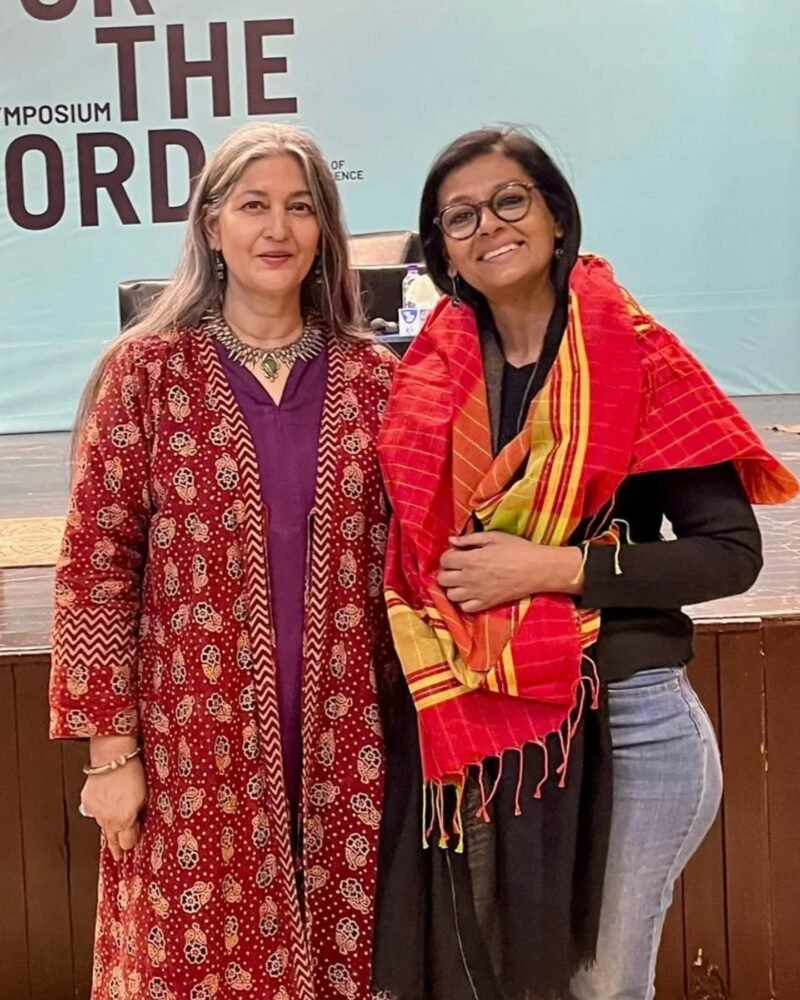
She also talked about raising sons. As a mother of a son, she shared her experience and the connection with her son. She insisted every parent should raise a sensitive man who understands and has empathy and sympathy for the other genders.
“We’re raising sons to be allies,” she emphasised, urging parents to nurture empathy. “Sensitivity isn’t weakness—it’s the foundation of equality.” Her reflections echoed British feminist Mary Wollstonecraft’s 18th-century call to reject “false refinement,” a reminder that centuries later, women still battle objectification.
Her NCA talk, meanwhile, blended warmth with urgency. When Prof Iram Zia Raja gifted her a 19th-century Rawalpindi lunghi-patterned scarf, a symbol of cross-border solidarity.
NCA Vice-Chancellor, Prof Dr Murtaza Jafri, expressed gratitude for her visit and presented her with a memento in recognition of her contributions to cinema and social discourse. Photo credits and additional input from NCA official Facebook page.
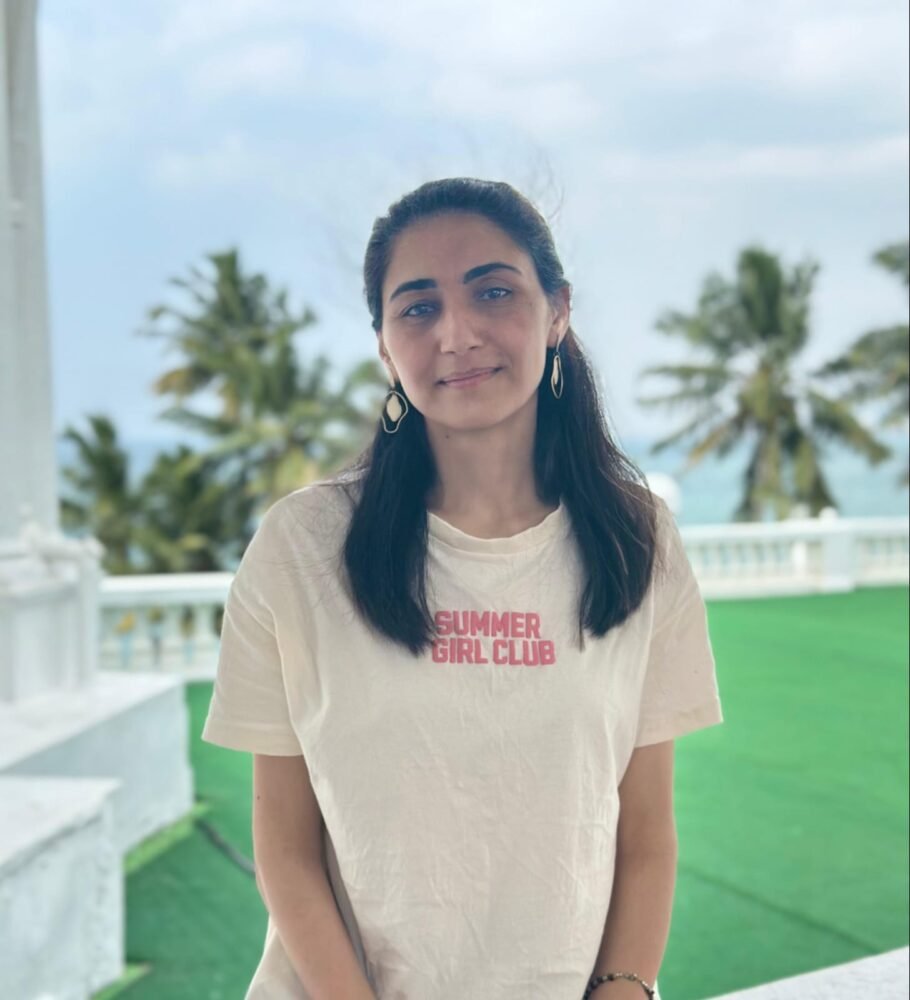
Rozina Ahmed is a visiting faculty member at the prestigious National College of Arts (NCA) Lahore. A holder of an MPhil in Social Sciences from Government College University (GCU), she bridges scholarly expertise with grassroots advocacy. An activist and writer, Rozina channels her passion for social justice into thought-provoking articles for The High Asia Herald, and international publications championing gender equity, climate justice, marginalised voices, and systemic reform.

The High Asia Herald is a member of High Asia Media Group — a window to High Asia and Central Asia

